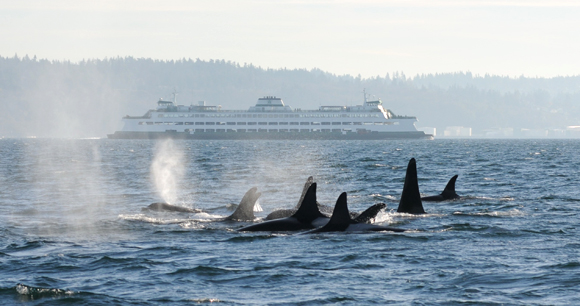Ships carry over 90 percent of the world’s trade. Recent research conducted off the coast of British Columbia has found that reduced ship traffic due to COVID-19 shutdowns has led to a reduction in ocean noise and a resulting break for marine animals. Between January and April, a hydrophone station west of Vancouver Island (and near a major shipping route for container traffic) recorded a 16 percent decrease in noise power—or 1.5 decibels—compared to the same period of the year before. The pandemic has also cut down the use of explosives, seismic airguns, and military active sonar, further reducing noise levels.

Ship noise can have a severe impact on marine animals. Vocal mammals, including cetaceans, call in the low-frequency sound range, which overlaps with that of ship noise. This overlap can inhibit their communication, feeding, and threat avoidance. When noise levels are reduced, researchers expect animals to call more frequently and for their calls to be more complicated. Other marine animals, including fish and shrimp, can also be impacted by anthropogenic noise, with damage ranging from disturbance to hearing loss resulting in impacts in performance of their natural behaviors.
It is the first time since another human tragedy—the 9-11 terrorist attacks—that worldwide movement has drastically slowed down. Researchers around the world are seizing this rare opportunity to collect data and listen to the oceans. Such data will help us better understand the usual impacts of anthropogenic noise on the oceans, and perhaps spur efforts to dampen that impact in the future.